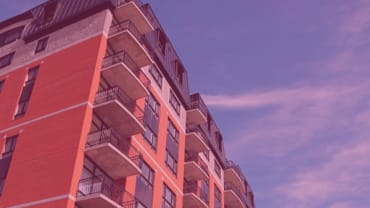It seems a long time ago now, but March 2020 was a period of rapid and escalating actions by governments across the world in response to the COVID-19 crisis. Life was still normal in most places at the beginning of March, yet by the beginning of April a significant number of countries had placed their citizens under some variation of 'lockdown'.
Those measures may have been imposed with the best of intentions, but in any system governed by the rule of law, the law must control well-meaning governments as well as those whose intentions are less benign (not least because there will rarely be consensus on who means well and who does not).
It is against that backdrop that the High Court of New Zealand decided in August that the New Zealand Government had breached the New Zealand Bill of Rights Act for the first nine days of its 'lockdown' – between 26 March, when the government started commanding people to stay at home, and 3 April, the date on which it actually became law that a person had to, other than for specified reasons, stay at home.
The legal challenge
The legal basis for New Zealand's 'lockdown' was orders made by the Director-General of Health under the Health Act 1956, which imposed different levels of restriction on 25 March, 3 April and 27 April:
• On 25 March, order 1 required the closure of all non-residential premises other than those listed as exempt and forbade gatherings in outdoor recreational areas.
• On 3 April, order 2 required everyone in New Zealand to stay at home (except for essential purposes) and required them, when not in their home, to maintain physical distancing.
• On 27 April, order 3 revoked the previous two and replaced them with a new regime similar to order 2, but with more types of movement permitted.
The claimant, a lawyer named Andrew Borrowdale, raised three connected legal challenges against the New Zealand Government. Two of those were against the lawfulness of the three orders: one on the basis that they exceeded the reach of the emergency powers granted under the 1956 Act and breached the New Zealand Bill of Rights; and the other on the basis that the decision as to which premises to close was unlawfully delegated to relatively junior civil servants. Those challenges were all refused by the court – essentially on the basis that the orders had been a lawful and proportionate response to an international health crisis.
However, Mr Borrowdale was successful on his remaining challenge, which related to the legality of public announcements made by the Prime Minister and other officials following the making of order 1.
Between 25 March and 3 April (i.e. after order 1 was made, but before order 2) the law in New Zealand only required closure of non-residential premises and forbade congregation in outdoor places of amusement or recreation. It remained legal for people to leave their home – and to meet in each other's homes – until 3 April.
The court ruled that it was therefore unlawful for the Prime Minister, the police commissioner, and other public officials to make announcements on TV, social media and elsewhere commanding people to stay at home and suggesting they would face punishment if they did not comply. That was a breach of rights to freedom of association and assembly and free movement that was not prescribed by law. Accordingly, it did not matter whether it was a proportionate pursuit of a legitimate aim – there was nothing in law that gave them any right to do it.
The limits of government power
This case is significant because it reminds us that politicians cannot make something law just by announcing it. Governments can ask, suggest, and even plead, but they cannot direct how individuals, families and businesses go about their daily lives, unless they have a lawful mandate to do so.
One may well have sympathy for governments in times of crisis, and it is easy to understand how mistakes could be made as governments scrambled to act quickly back in March. But life has not returned to normal yet, and restrictions continue to be imposed or re-imposed in response to new breakouts. Those measures are not without their own costs and where governments, however well-meaning, act beyond their legal powers, it is important those affected are able to challenge those actions in court.
Contributor
Senior Associate












